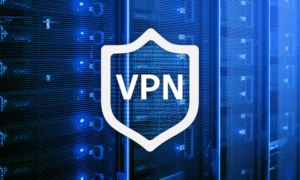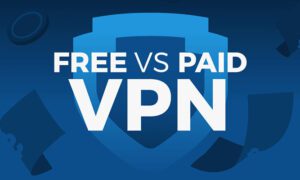Are there any other security and geo-spoofing tools that can compare to the good old VPN? Like with almost any IT solution, there are alternatives out there. Let’s take a look. First, the question is: what do you require? It may turn out that the VPN suits your needs perfectly. Nothing else is identical, there are even remarkable differences among VPN services themselves. Here we present a few options with their specific applications. Let’s start with the one similar to VPN.
Proxies
Technically, VPN is a kind of proxy, though these terms aren’t usually interchangeable. The similarities are apparent: both use a server as a gateway to the rest of the Web and both change the user’s IP address. But a proxy works in a higher layer of Internet protocols, which means it won’t cover all of your traffic. Also, it doesn’t necessarily apply any encryption, so you typically won’t gain any extra security. On the upside, proxies are cheaper to run and most probably faster. It’s a decent option if you don’t worry about privacy and just need to change your location. There’s also an option in-between: a VPN which uses a tunneling protocol typical for proxies. An example is TuxlerVPN with SOCKS5 protocol.
Tor network
The Onion Routing technique serves to maximize your anonymity online. Using a special Tor browser, your traffic gets redirected through more than one of the community-supplied nodes. This means several layers of encryption (hence the onion metaphor). Each node only knows about the previous and the next one, so tracking is extremely tricky. The downside is, all that secrecy slows the traffic down. You won’t be able to watch videos in 4K smoothly, but this is one of the best ways to ensure nobody knows anything about your online activity. And that’s why Tor is infamous for being used for just about any illegal activity there is – keep that in mind when considering it.
A cybersecurity suite
Maybe a VPN isn’t exactly what you need because it lacks additional protection like antivirus, firewall, anti-spam filter, or password manager. If it sounds interesting, consider switching to a larger software suite. Many cybersecurity companies offer VPNs in their products. They are typically quite costly options, but buying many pieces in a bundle might get you a good deal. That is if you truly need professional and versatile online protection besides VPN only.
Cloud solutions and VPC
VPN was first invented mainly to facilitate remote work. But if you don’t need access to your company’s server, a cloud solution might be better. Simple storage of documents, spreadsheets, and images is enough for many employees. It must be combined with secure access, but the prevalent HTTPS protocol manages it just fine. There are a number of solutions, including setting up a customized cloud within the corporate network. Mass storage is cheap, so many companies offer their cloud services in affordable subscription plans, both for personal and enterprise use.
There is also a relatively new invention called Virtual Personal Cloud. It combines cloud storage for a given organization with safe access through a VPN. Each user is personally granted access to it. It provides logical resource separation and secure access – a solution of the future, especially for larger companies.
Zero trust security
This is what many organizations have turned to instead of VPNs. Over time, the corporate networks grew so extensively that a far more sophisticated remote access system was required. VPN grants a remote user access to the whole system at once, which turned out not safe enough. Zero trust architectures rely on one key principle: never trust, always verify. It isn’t about any specific technologies, but about assumptions. Unless a user, a device, or a system isn’t authenticated and authorized, it can’t be considered safe. It doesn’t depend on the location, so even plugging directly into the inside network won’t help the intruder. Mutual authentication is also an important convention when both the accessing party and the entity being accessed need to prove their authenticity at the same time.
Such solutions are quite complicated and not easily implemented, but worth the effort when a lot of sensitive data is at stake. For example, Google created its zero-trust architecture called BeyondCorp in 2014. It was a response to a large-scale cyberattack known as Operation Aurora.
VPN is an old technology, but far from obsolete. In many situations, it remains an optimal choice. Especially if you don’t manage a corporation and need a simple solution to boost your online privacy or change the IP address. In any case, be aware that there are many options at hand. Always stay safe online!



































